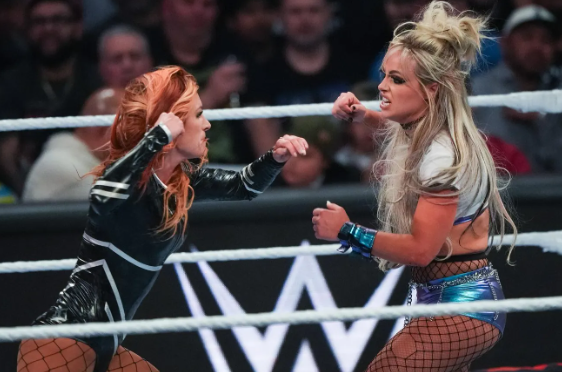Professional wrestling is no stranger to last-minute changes, backstage decisions, and creative rewrites. As the global sports entertainment leader, WWE is particularly known for its fluid storytelling and adaptability. However, when reports surfaced that WWE had altered planned matches following the recent episode of SmackDown in Orlando, it sparked a wave of speculation and discussion among fans and industry insiders alike. This blog delves into the details of these reported changes, their potential reasons, and what they mean for WWE’s ongoing storylines and future events.
The Orlando SmackDown: A Pivotal Night
The episode of SmackDown in Orlando was already highly anticipated, with several key storylines building toward WWE’s next premium live event. In recent months, the blue brand has been on a roll, delivering compelling matches and character-driven narratives. However, as is often the case in WWE, what fans see on television is only part of the story. Behind the scenes, creative teams constantly adjust plans based on various factors, including fan reactions, injuries, and long-term booking strategies.
According to reports from reputable wrestling news outlets, several matches were altered or scrapped entirely after the SmackDown taping in Orlando. While WWE has not officially commented on these changes, the rumours have fueled intense debate among the wrestling community. Let’s break down what we know so far.
What Changed and Why?
While the specifics of the reported changes remain somewhat murky, several key details have emerged:
- Main Event Adjustments: The main event of SmackDown in Orlando was originally slated to feature a high-stakes match involving top-tier talent. However, the planned bout was modified or replaced with a different matchup. This could have been due to creative disagreements, concerns over the performers’ readiness, or a desire to pivot toward a different storyline direction.
- Midcard Shakeups: The midcard is often where WWE experiments with new pairings and feuds. Reports suggest that some midcard matches were reworked to better align with upcoming storylines or to give certain talents more prominent roles. This is not uncommon in WWE, as the company frequently adjusts its midcard to test audience reactions and build momentum for rising stars.
- Tag Team Turmoil: The tag team division on SmackDown has been a highlight in recent months, with several teams vying for supremacy. It’s rumoured that a planned tag team match was altered to accommodate a surprise return or to set up a future feud. Tag team wrestling is a cornerstone of WWE programming, and changes in this division can have ripple effects across the entire show.
- Women’s Division Tweaks: The women’s division on SmackDown has been a focal point of WWE’s storytelling, with several high-profile rivalries taking centre stage. Reports indicate that some women’s matches were adjusted to better position certain stars for upcoming events. This could signify that WWE will soon lay the groundwork for a major women’s storyline.
The Reasons Behind the Changes
So, why would WWE make these changes after SmackDown in Orlando? There are several potential explanations:
- Creative Realignment: WWE’s creative process is notoriously fluid, with Vince McMahon and other decision-makers often making last-minute adjustments. If the original plans for SmackDown didn’t align with the company’s long-term vision, changes would have been necessary to keep storylines on track.
- Injury Concerns: Injuries are an unfortunate reality in professional wrestling. Suppose a performer suffered a nagging injury or a setback during the taping. In that case, WWE may have altered the match to protect the talent and avoid further complications.
- Fan Reactions: WWE is highly attuned to fan reactions in the arena and on social media. If a particular angle or match didn’t resonate with the audience, the company might have decided to pivot in a different direction to maintain engagement.
- Building Toward a Major Event: With a premium live event on the horizon, WWE may have needed to tweak its storylines to create more compelling matchups. The changes could be part of a larger strategy to build anticipation and deliver a memorable show.
- Surprise Returns or Debuts: WWE loves to keep fans on their toes with unexpected returns or debuts. The changes may have been made to accommodate a surprise appearance, which could have significant implications for ongoing storylines.
The Impact on WWE’s Storytelling
While last-minute changes can be frustrating for fans and performers alike, they are integral to WWE’s storytelling process. The company’s ability to adapt on the fly has been a key factor in its success. However, these changes highlight the challenges of maintaining a cohesive narrative in a live television environment.
For fans, the reported alterations remind them that what they see on screen results from countless decisions made behind the scenes. While some changes may enhance the product, others can lead to confusion or dissatisfaction. The key is for WWE to balance flexibility and consistency, ensuring its storylines remain engaging and coherent.
What’s Next for SmackDown?
As WWE moves forward, the changes made after SmackDown in Orlando could impact the blue brand’s direction. Here are a few possibilities to consider:
- New Feuds and Rivalries: The adjustments could pave the way for fresh feuds and rivalries, giving underutilized talents a chance to shine. This could inject new energy into SmackDown and keep fans invested in the product.
- Elevating Rising Stars: WWE has a deep roster of talented performers, and the changes might be an opportunity to elevate rising stars. WWE can build the next generation of main event talent by giving these individuals more prominent roles.
- Setting the Stage for a Major Event: With a premium live event on the horizon, the changes could be part of a larger strategy to create must-see matchups. As WWE builds toward its next big show, fans can expect heightened drama and high-stakes action.
- Surprises and Swerves: WWE thrives on unpredictability, and the changes could be a precursor to a major surprise or swerve. Whether it’s a shocking return, a heel turn, or a title change, fans should be prepared for the unexpected.
Conclusion
The reported changes to matches after SmackDown in Orlando are a testament to the dynamic nature of WWE’s creative process. While the specifics of these adjustments remain unclear, they underscore the challenges and opportunities inherent in producing live television. For fans, these changes are a reminder that anything can happen in professional wrestling and that the journey is often as exciting as the destination.
As WWE continues to navigate the ever-evolving landscape of sports entertainment, one thing is certain: the company’s ability to adapt and innovate will remain a cornerstone of its success. Whether these changes lead to new stars, unforgettable moments, or unexpected twists, the future of SmackDown promises to be as thrilling as ever. So, buckle up, wrestling fans—WWE is always full of surprises!







